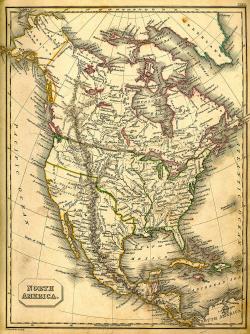The Legacy of The Prince
What if Niccolò Machiavelli’s influential book “The Prince” only tells us what God already knew the world would be like under Satan’s influence? Are Machiavellian politics and personalities really the most successful, or does God’s word show us a better way?
The year 2023 marks the 510th anniversary of a famous little book written by a European nobleman named Niccolò Machiavelli. That book, The Prince, is one of the most famous and influential books on politics ever written. It has even given the name “Machiavellian” to the practices it advocates—of scheming and deceit for the acquisition and maintenance of power.
Machiavelli lived from 1469 to 1527 during a turbulent time in Italian history. Italy was disunited, and its great noble families engaged in labyrinthine struggles for control, against each other and foreign powers. In Florence, being in or out of favor with, say, the Medici family or a particular pope could mean either high office or imprisonment. Machiavelli experienced both. These forces forged the worldview of this diplomat, administrator, and political philosopher.
Today, a bad career decision may force a change of jobs; in Machiavelli’s Florence, it could result in imprisonment or death. This hostile environment was reflected in the view Machiavelli expressed in The Prince: that a ruler should be guided not by a moral code, but by the pragmatic steps needed to acquire and maintain power. Machiavelli advises the rising and ambitious ruler that the dictates of power are the primary consideration in all policies and actions. According to Britannica.com, “Machiavelli can be interpreted as the founder of modern political science, a discipline based on the actual state of the world as opposed to how the world might be…. The amoral interpretation fastens on Machiavelli’s frequent resort to ‘necessity’ in order to excuse actions that might otherwise be condemned as immoral” (“Niccolò Machiavelli,” January 2023).
The Machiavellian Personality
In The Prince, Machiavelli advises rulers that it is more effective to show arrogance than humility when dealing with others, that powerful people should feel free to cheat and deceive whenever it suits their purpose, that it is better to be feared than loved, and that to be popular and secure in power, a prince need not be virtuous, but must appear so. Are there people today who actually live the way Machiavelli proposed?
In 1970, psychologists Richard Christie and Florence Geis published Studies in Machiavellianism, identifying a distinct personality type characterized by manipulation in relationships and cynicism about human nature. They administered a test containing statements such as, “Never tell anyone the real reason you did something unless it is useful to do so.… The best way to handle people is to tell them what they want to hear.… Anyone who completely trusts anyone else is asking for trouble.”
Respondents who agreed with such statements were called “High Machs” and were found very prone to having a “Machiavellian” personality. On the other hand, someone who scored low as a Machiavellian would tend to agree with statements such as, “It is never right to lie to someone else.… Most people are basically good and kind.… One should take action only when it is morally right.”
Commenting on the study, psychologist Harriet Braiker wrote, “High Machs influence or manipulate others in predictable ways, using tactics that are exploitive, self-serving, and nearly always deceptive. High Machs tend to constitute a distinctive type. They tend to be charming, confident, and glib; but they are also arrogant, calculating and cynical, prone to manipulate and exploit” (Who’s Pulling Your Strings?, 2004).
The Real Prince of Our Current World
As in Machiavelli’s day, today’s aspiring leaders deeply desire the personal validation of power and many will take almost any measure to achieve it. The Apostle James explained why: “Where do wars and fights come from among you? Do they not come from your desires for pleasure that war in your members? You lust and do not have. You murder and covet and cannot obtain. You fight and war” (James 4:1–2). It is all about two very different ways of life. God’s very nature and character is love and outgoing concern for others—the way of give. But the way of the politics of this world is get—self-focused—in obedience to a very different ruler.
Jesus Christ identified the true prince of this current world when He said to His disciples, “The prince of this world cometh and hath nothing in me” and “is judged” and is “cast out” (John 14:30; 16:11; 12:31, King James Version). This prince has a kingdom in this world (Matthew 12:26) and is the actual “god of this age” (2 Corinthians 4:4).
To whom was Jesus referring as the current ruler of today’s world? The Bible reveals that this world has a spiritual ruler who embodies all of the ambitions and willfulness of today’s ambitious leaders. Notice the nature that this former archangel reveals: “I will ascend into heaven, I will exalt my throne above the stars of God; I will also sit on the mount of the congregation on the farthest sides of the north; I will ascend above the heights of the clouds, I will be like the Most High” (Isaiah 14:13–14).
This spiritual being was once called Lucifer—the “light bringer”—but in his willful rebellion against God Almighty he became Satan, meaning the “adversary.” God declares this evil fallen angel’s destination: the lake of fire, from which he will never influence anyone or anything again (Revelation 20:10).
Another Prince Is Coming
In contrast to this evil “prince of the power of the air” (Ephesians 2:2), Scripture tells us that another Prince will soon come to the earth—the “Prince of Peace.” Jesus Christ taught a way very different from that of Machiavelli. In the New Testament, we find that one of the greatest virtues people should seek is peace. Peace is listed as one of the fruits of God’s Holy Spirit (Galatians 5:22).
Scripture shows that Christ will return as the leader of a powerful army, but He will use His power to establish and rule a peaceful Kingdom. God said through the prophet Isaiah that “the earth shall be full of the knowledge of the Lord as the waters cover the sea” (Isaiah 11:9). Christ’s government will fill the whole earth and replace its current, profane governments.
It was Satan’s government and kingdoms that Jesus saw when the devil offered, “All this authority I will give You, and their glory; for this has been delivered to me” (Luke 4:6). This world and its power and government were indeed Satan’s to give, and many have taken their share of his seductive deal. Jesus rejected Satan’s offer and, in effect, blew him away with the breath of His lips when He said, “Get behind Me, Satan! For it is written, ‘You shall worship the Lord your God, and Him only you shall serve’” (Luke 4:8). Those who today fashion themselves as followers of Machiavelli are essentially accepting an offer from the wrong prince!
The Prince has profoundly influenced political thought for more than 500 years—and it continues to do so. Sadly, today’s politicians do not understand that the principles Machiavelli expressed represent the corrupt spirit of a system that will soon come to an end. Thankfully, true Christians can be set apart from that system, and God’s Church strives to practice His way of government, free of the cynicism and manipulation Machiavelli advised.
True Christians look instead to a very different Prince—the Prince of Peace—as the One from whom their values come, and who will soon return to lead a government far, far different from what Machiavelli described.






